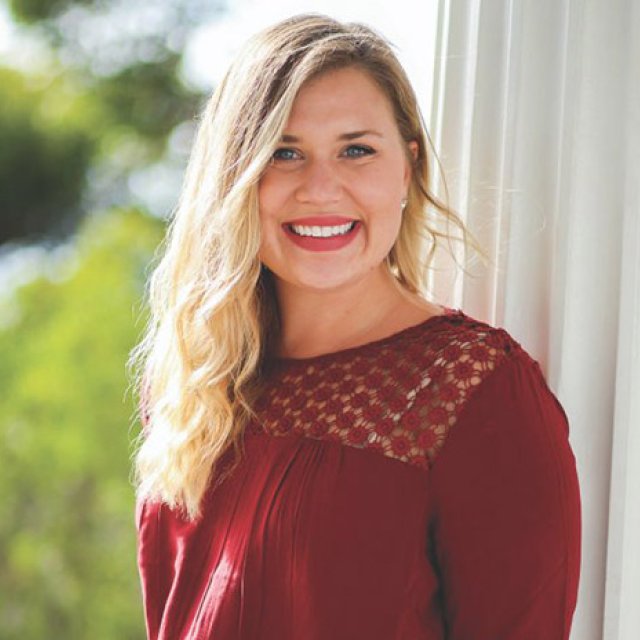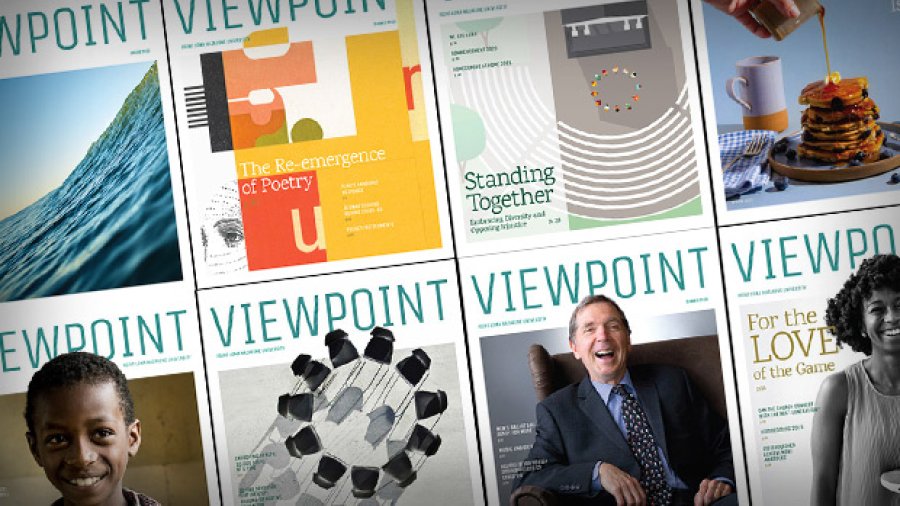
My education has undoubtedly shaped me into who I am today, but I did not fully realize the power of an education until I stood in a classroom on a warm spring day in India two years ago. The classroom was full of 10-year-old girls who recited their classroom commandments to me. With sparkling eyes and booming voices, they declared:
I am not inferior to anyone. I shall be the leader wherever I am. I shall do what I love and be different. I shall always think big and aim high. I shall never fear the unknown. I shall never give up.
India is a land of great paradoxes — of bright colors, dull skies, great wealth, and great poverty. It is a land filled with the empowered and crippled by the powerless. It has been two years since I breathed the suffocating warm air, walked the dusty streets, and dressed in the vibrantly colored clothing, and this month I will return.
I have been awarded a Fulbright Fellowship through the U.S. Department of State. Through the grant, I will teach English for nine months at a high school in Mumbai and serve as a cultural ambassador to the U.S.
I will return to a country that has both challenged and inspired my faith, my preconceived notions of happiness, and my ideas about humanity. This place also taught me lessons about what it is like to be treated differently because of the color of my skin, my place of birth, and my gender.
I lived in a world of different customs, religions, and practices. Yet, I learned a lesson about commonality — the fact that we all have the same basic needs, the same relentless pursuit of truth, and the same capacity to smile and laugh. I learned to appreciate the similarities and cherish the differences.
I learned many invaluable lessons, but the greatest lesson I learned was one I have been learning my entire life: I learned a lesson about education.
For 16 years now, I have sat in classrooms. I have spent countless hours memorizing, highlighting, annotating, reading, practicing, and testing. I have learned about the malleability of words, the power of my voice, and the potency of asking questions that seem to have no answers.
But as I learned in India, education is not about test scores or grades. It is not about word counts, group projects, or class syllabi. It is about daily devoting yourself to something that will enlighten your mind, expand your horizons, and inspire you to do something great with your one precious life. It is about having educators and role models that recognize your potential and push you to achieve.
Education is the power behind each girl’s voice in the room that tells her she can do anything, be anything, and go anywhere. It is the power that defies the unforgiving grip of doubt, oppression, and adversity. It is a power that empowers.
While studying abroad in 2014, I participated in a community engagement program. Through the program, I worked in classrooms, ran after-school programs, and carried out a research project that focused on the factors that hinder a girl’s education in India. I learned that the education of girls has a multiplying effect and it is considered one of the greatest pathways to harnessing social and economic development in a country. An educated woman is less likely to marry early, contract HIV/AIDs, and die at childbirth. She is more likely to enter the formal workforce, vote in a nation’s elections, seek healthcare, and enroll her children in school. Education can better the life of a woman and change the trajectory of a community.
In two weeks, I get to return to India to be an agent for this type of change. I get to be a teacher.
In teaching, my hope is to share the gift of education a ordered to me throughout my lifetime. I look forward to revisiting the novels of my childhood, to encouraging challenging conversations, and to becoming acquainted with a classroom of young adults full of potential
I hope to inspire my students as my professors and teachers have inspired me. I hope to share the knowledge that I have spent my lifetime collecting and receiving. I hope to be a friend, an advocate, and a role model.
Though I have spent the past 16 years of my life as a student, I have never been a teacher. I have not taken courses on education, studied pedagogies, or developed curriculum. I will learn as my students learn; I will teach and be taught. As I challenge students, I expect to be challenged by my own ineptitude at times.
I myself will have to follow the commandments taught to me by the Indian schoolgirls, reminding myself to always think big and aim high, to never fear the unknown, and to never give up.

The Viewpoint
PLNU's university publication, the Viewpoint, seeks to contribute relevant and vital stories that grapple with life's profound questions from a uniquely Christian perspective. Through features, profiles, and news updates, the Viewpoint highlights stories of university alumni, staff, faculty, and students who are pursuing who they are called to be.